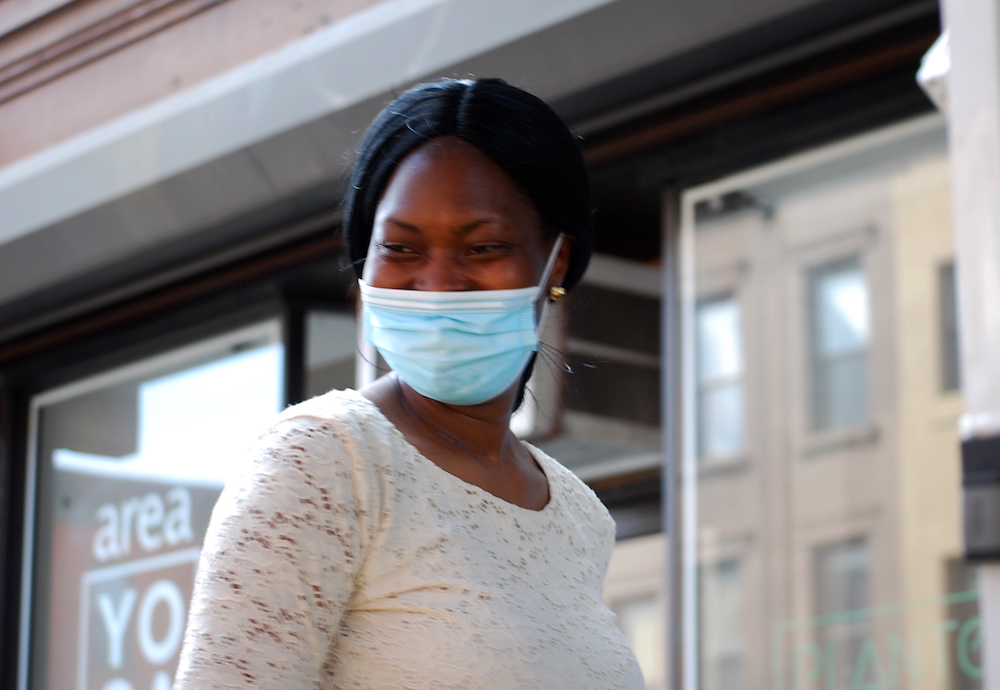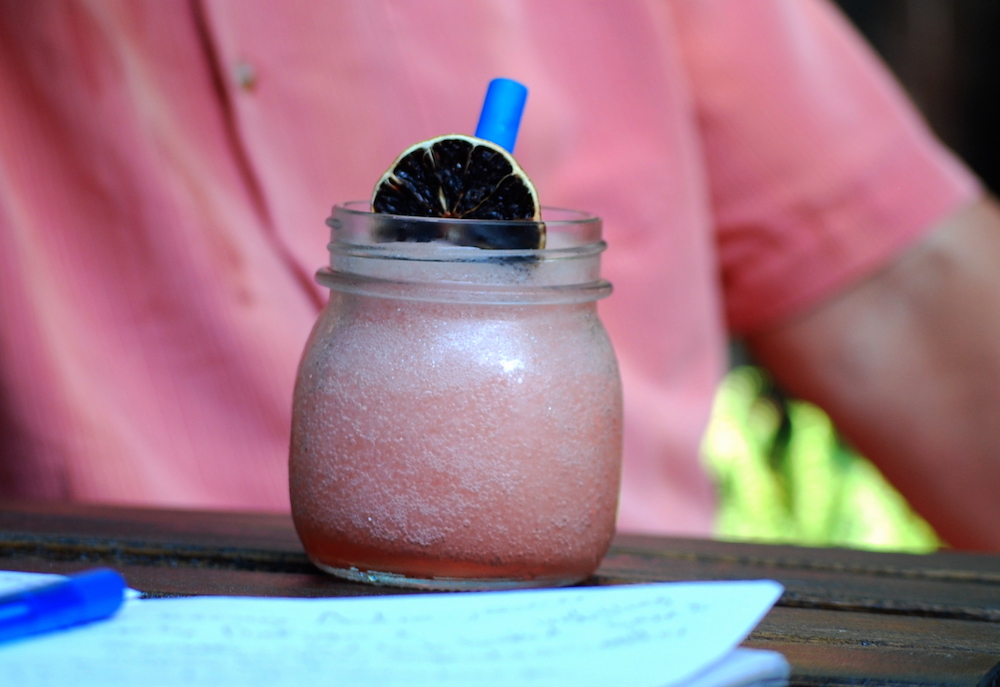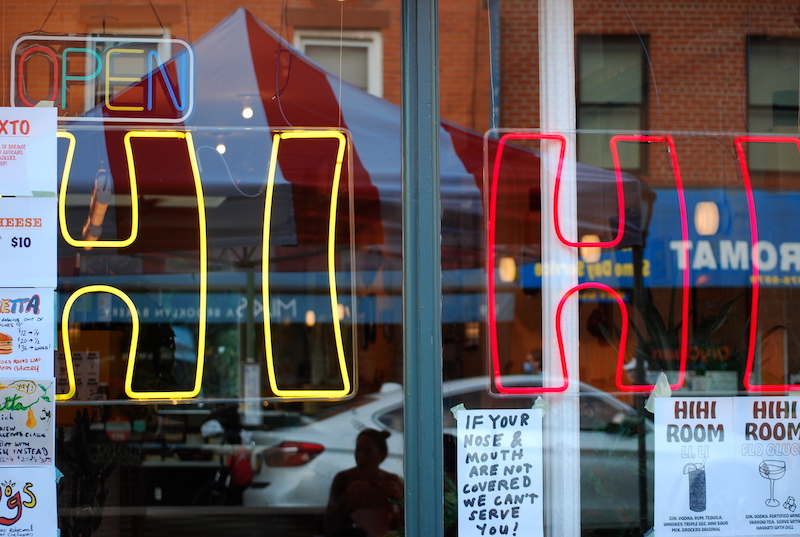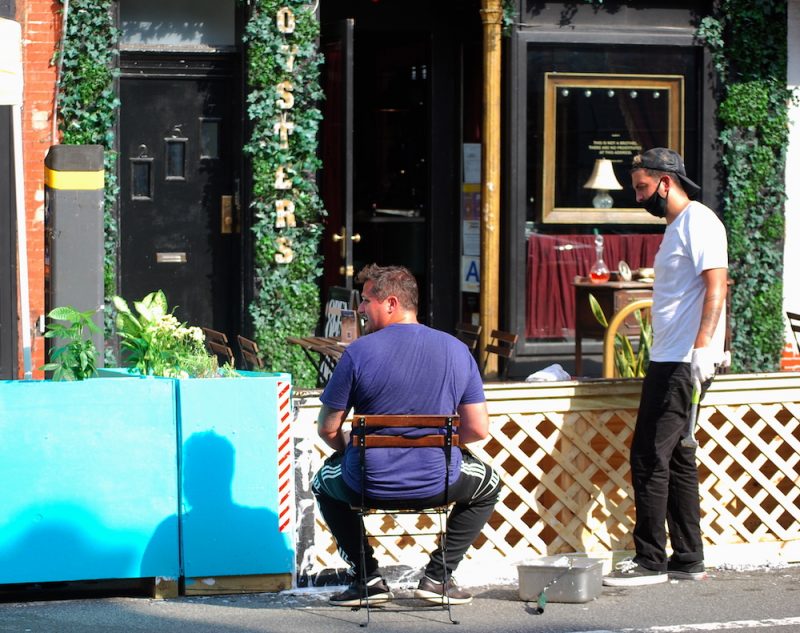The Cubana Cafe, on 272 Smith Street, has an elegant wooden street enclosure for outdoor dining. It’s mini-Havana pastels evoke calm, even as passing trucks blare, trains rumble underfoot, and the birds get into tweeting wars with one another at the empty tables nearby.
Outdoor dining has its highs and lows like any other aspect of the restaurant business. So KCP took a stroll down Cobble Hill’s prominent bar, cafe, and restaurant scene just to see how the local hospitality is faring in New York City’s wayward reopening.
The general consensus among the restaurant owners was simple: We’re struggling, but open.

Whether it’s carefully painting and building a street barrier to match the swanky interior and secret garden behind Owner Jeremy Andre’s Barely Disfigured bar and lounge, at 257 Smith Street, or paying bills by the skin of their teeth at The Hihi Room just down the street.
At least it seems like businesses have gotten some help from local entities to stay afloat, in addition to disaster and forgiveness loans and the federal Paycheck Protection Program (PPP).
One helpful resource guide, compiled by the Brooklyn Chamber of Commerce (BCC), outlines how to avoid city violations for barriers since the Open Restaurants and Open Streets programs combined.
“Brooklyn’s hospitality industry has been financially paralyzed for over four months,” said President and CEO of BCC Randy Peers. “Now that restaurants and bars have the opportunity to reopen, they’re operating under a patchwork of ever-changing and confusing regulations that need to be sorted out immediately and clearly before more small businesses close permanently.”

The guide also includes updates and links for the latest regulations, like the New York State Liquor Authority executive order effective last Friday, July 17, that states all licensed establishments “with on premises privileges” can’t serve alcoholic beverages unless served with food.
The order has naturally incited more than one bar owner to complain.
Andre said that the Barely Disfigured Bar doesn’t really serve other food, but has gone to dishing out oysters, meat, and cheese plates to maintain selling their jazzed up drinks like the ‘U Up’ frozen rose concoction that features a dehydrated lime. Andre was in the middle of putting his fencing together for his street enclosures. He said he doesn’t like to put up the umbrellas and tents as a personal design preference that clashes with the revived brothel look of his establishment.
“The rain and the noise are causing a slowdown,” said one managing employee at the Hihi Room, about the restaurant reopening in general, “But at least there’s signs of life.”
He was spread out at a table with papers and bills inside the empty bar while customers gathered outback and in front under the giant red-striped tent.
Reportedly, they had at least two different people visit and email about minor infractions regarding his tent and street enclosures, he said, but no one ever communicated to him what was wrong just that they needed fixing. He said at least one of the ticketers was from the Department of Transportation (DOT) and the other was from New York State Department of Environmental Conservation (DEC), where he assumed the effort to monitor reopening guidelines is being outsourced to.

“Restaurants and bars are vital to the economic and social fabric of our City and we need to work with government officials to ensure they have clear regulatory guidance and a roadmap to reopening safely indoors. And these small business owners are facing financial disaster, so in addition to guidance, they need direct financial relief, particularly when it comes to rent,” said NYC Hospitality Alliance Executive Director Andrew Rigie.
According to NYC Department of Consumer and Worker Protection (DCWP), has partnered up with various community-based organizations, elected offices and sister agencies to discuss workers’ rights, reopening guidelines, and resources available for merchants and workers and also share information on consumer protection tips and financial resources available in 220 virtual and in-person outreach events since March 9.
“DCWP, in partnership with local BIDs, DCWP is visiting businesses in neighborhoods hardest hit by COVID-19, as well as busy retail corridors, to educate them and their workers about their rights and responsibilities during NYC’s reopening,” said Melissa Barosy of DCWP.
The DCWP summary of labor laws for employers and employees continues to protect worker’s sick leave, especially in this time of COVID-19 without a viable vaccine, when it’s likely schedules will change and family members may need to be cared for.






